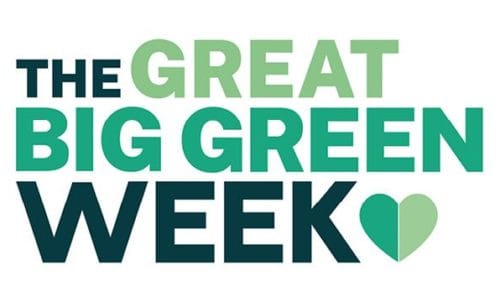
Great Big Green Week: what does it all mean?
Date Published: 10/06/2024 | Blog category: Communitynews
During Great Big Green Week, communities across the UK come together to celebrate and promote environmental action. Here at Central Co-op, we’re taking this opportunity to highlight our ambitious sustainability goals and debunk some common environmental terms that are often misunderstood. With a firm commitment to creating a sustainable Society for all, we’re setting targets on green energy, Net-Zero emissions and energy reduction, but what does this really mean?
As Central Co-op drives forward with its sustainability initiatives, it's important to understand some key terms frequently used in environmental discussions.
- Carbon emissions
- Myth: All carbon emissions are harmful and should be completely eliminated.
- Reality: While it's important to reduce carbon emissions, some emissions are currently unavoidable. The goal is to cut emissions as much as possible and manage the remaining emissions responsibly. Central Co-op is focusing on reducing our carbon footprint through energy-efficient practices and renewable energy (like solar power!)
- Offsetting
- Myth: Offsetting is a way for companies to avoid reducing their own emissions.
- Reality: Offsetting involves investing in projects that reduce or remove carbon dioxide (CO2) from the atmosphere to balance out unavoidable emissions. Effective offsetting should complement efforts to directly reduce emissions, not replace them. Central Co-op uses offsetting as part of our strategy to achieve carbon neutrality and eventually net-zero.
- Net-zero
- Myth: Net-zero means that no CO2 is produced at all.
- Reality: Achieving net-zero means balancing the amount of CO2 we put into the air with the amount we take out. This can be done by reducing emissions as much as possible and then using methods to remove or offset any remaining emissions. Central Co-op aims to achieve net-zero by 2040 by reducing our emissions and offsetting what remains.
- Carbon neutral
- Myth: Carbon neutral and net-zero are the same.
- Reality: Carbon neutral means balancing out the carbon emissions from specific activities or operations by offsetting them, often in the short term. Net-zero is a broader goal that involves reducing all emissions as much as possible and then offsetting the rest to achieve a balance. We’re targeting carbon neutral status by 2030 and aiming for net-zero by 2040.
- Natural restoration
- Myth: Natural restoration is simply about planting more trees.
- Reality: Natural restoration involves various activities to bring nature back to a healthy state. This can include planting trees, restoring wetlands and rehabilitating damaged lands. These efforts help improve biodiversity, support ecosystem services and capture carbon from the air.
Central Co-op’s dedication to sustainability is reflected in our ambitious goals and innovative strategies:
- Green energy, reducing our reliance on traditional energy sources. This involves investing in renewable energy sources like solar and wind power.
- Net-zero by 2040: Building on our carbon neutral 2030 target, we’re working with the Science Based Target initiative to set plans for net-zero by 2040. This includes creating more net-zero stores.
- Energy reduction: We’re driving down energy consumption through measures such as installing LED lighting, adding doors to chillers and using more efficient refrigeration and freezers.
Recently, we achieved net-zero status in four of our stores, with two stores even reaching carbon negative status. These milestones highlight the Society’s commitment to sustainability within the retail industry. By adopting renewable energy, implementing energy-efficient practices and managing waste effectively, we’re not only meeting but exceeding government energy efficiency targets in many of our stores.
As we continue to pave the way towards a greener future, we hope to demonstrate that ambitious environmental goals are achievable and beneficial for both businesses and the planet. During Great Big Green Week, let’s celebrate progress and support the mission to create a sustainable Society for all. By understanding and embracing key environmental concepts, we can all contribute to a greener, more sustainable future.



